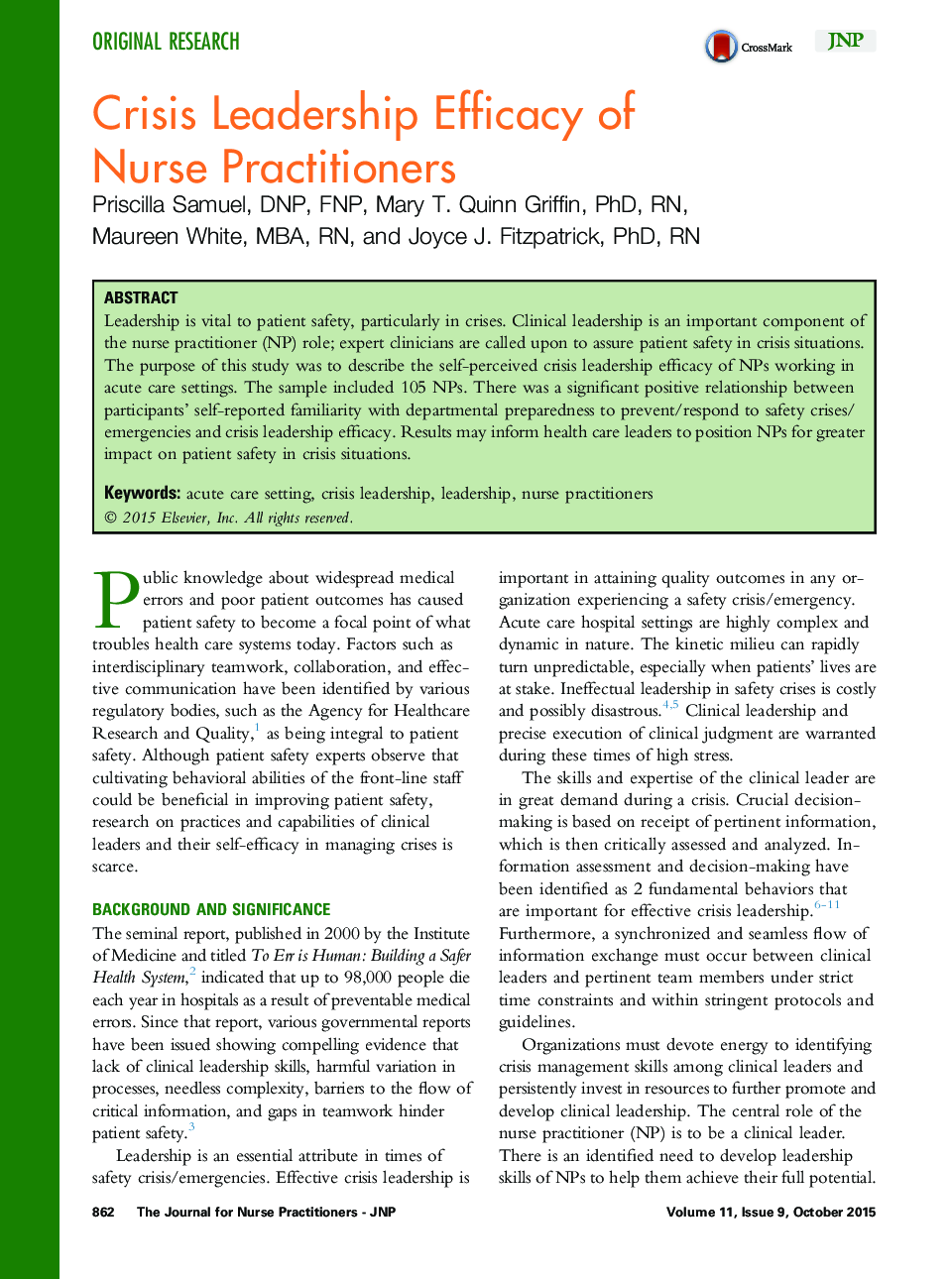| Article ID | Journal | Published Year | Pages | File Type |
|---|---|---|---|---|
| 2661978 | The Journal for Nurse Practitioners | 2015 | 7 Pages |
•Patient safety experts observe that cultivating behavioral abilities of the front-line staff could be beneficial in improving patient safety.•Research on practices and capabilities of clinical leaders and their self-efficacy in managing crises is scarce.•Nurse practitioners within the integrated health system reported high levels of crisis leadership efficacy, even though they held no formal positions of leadership.
Leadership is vital to patient safety, particularly in crises. Clinical leadership is an important component of the nurse practitioner (NP) role; expert clinicians are called upon to assure patient safety in crisis situations. The purpose of this study was to describe the self-perceived crisis leadership efficacy of NPs working in acute care settings. The sample included 105 NPs. There was a significant positive relationship between participants’ self-reported familiarity with departmental preparedness to prevent/respond to safety crises/emergencies and crisis leadership efficacy. Results may inform health care leaders to position NPs for greater impact on patient safety in crisis situations.
